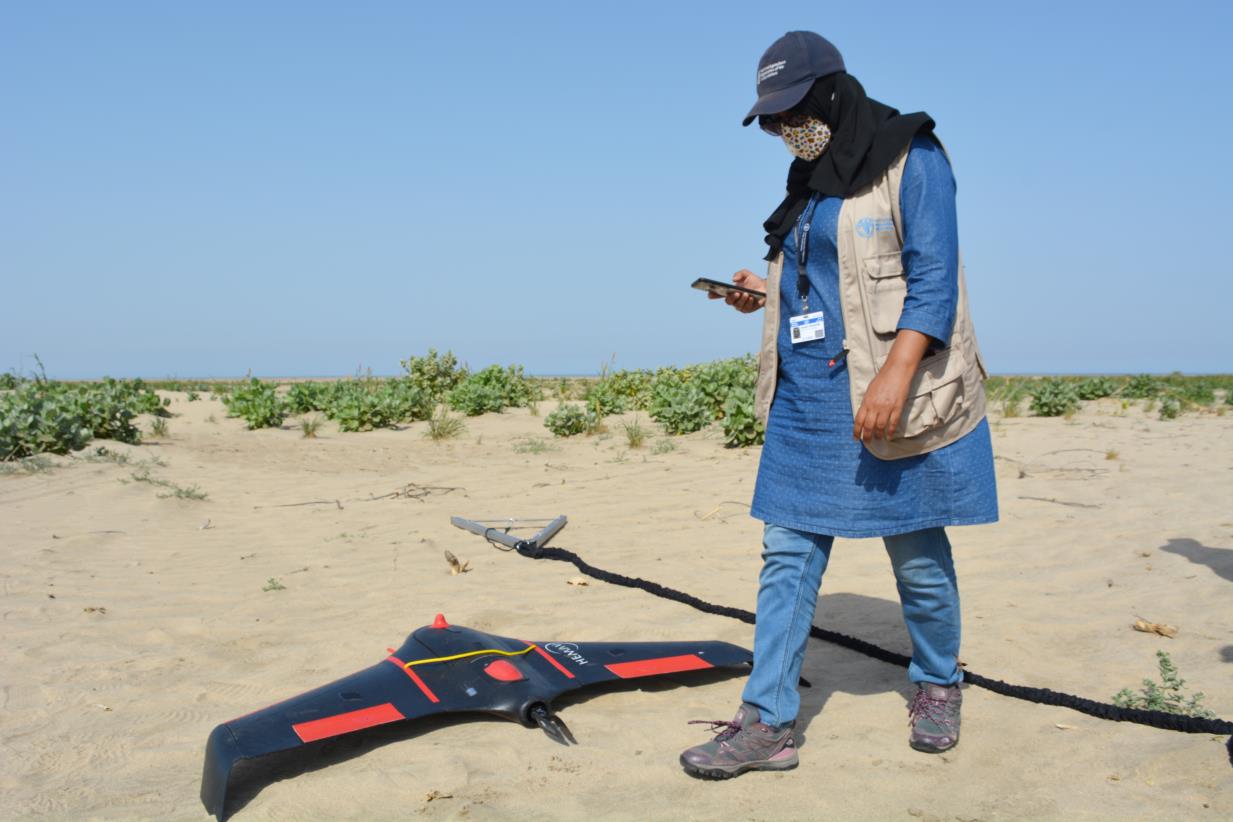Saving lives and livelihoods: innovative technologies for agricultural early warning systems

5 July 2022 – The potential of digitalization to improve efficiencies in the agrifood sector, to reduce its environmental footprint and to prevent crisis through early warning systems– these were the topics discussed at a Brussels Briefing organized jointly by the FAO Liaison Office in Brussels and the European Commission’s Joint Research Centre (JRC). The event, held in the form of a webinar, specifically examined the role of innovative technologies for agricultural early warning systems.
Food systems transformation through digitalization is one of the five thematic areas that FAO and the European Commission have been focusing on during their ongoing Strategic Dialogue. With food supply chains exposed to multiple shocks, ranging from more frequent and severe climate extremes to the negative impacts of conflicts and the COVID-19 pandemic, early warning systems play a key role in preventing crises and providing evidence for response and policy-making.
Welcoming the participants, FAO Brussels Director Raschad Al-Khafaji explained how, since 2021, the European Commission and FAO have been working together to deliver on the priorities defined by the Strategic Dialogue process. FAO Chief Economist Máximo Torero Cullen and Alan Belward, Acting Director, Sustainable Resources and Head of Unit, Food Security at JRC, highlighted how early warning systems can be used for food security analysis and crisis prevention. Both speakers described the common work conducted as part of projects and tools jointly developed by FAO and JRC.
Two sessions presented the latest technological innovations for agricultural information systems, together with feedback from some of their main users. A wide array of systems were presented including:
- the Global Information and Early Warning System on Food and Agriculture (GIEWS), which continuously monitors food supply and demand and other key indicators for assessing the overall food security situation in all countries of the world;
- the Group on Earth Observations Global Agricultural Monitoring Initiative (GEOGLAM), which uses sustained Earth observations to produce and disseminate relevant, timely and actionable information on agricultural conditions and outlooks of production at national, regional and global scales; and
- the International Food Security Phase Classification (IPC), a multi-partner initiative that involves a variety of actors working together to determine the severity and magnitude of acute and chronic food insecurity, and acute malnutrition situations in a given country.
Deputy Head of Unit at the European Commission’s Directorate-General for International Partnership Willem Olthof closed the event, underlining the importance of consensus-building as an essential element of early warning systems.
Brussels Briefings will continue after the summer, including on issues pertaining to the five thematic areas of the Strategic Dialogue. A recording of the Brussels Briefing can be found here.
